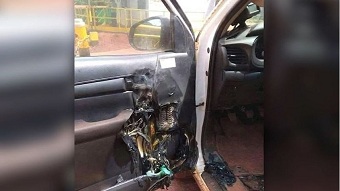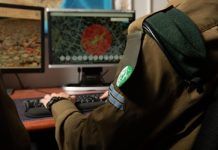Hand sanitizer cannot spontaneously ignite if left in your car, despite rumors on social media, The Louisiana Office of State Fire Marshall has clarified. LOSFM extinguished the rumor circulating on the internet, stating hand sanitizer will not catch fire if it’s left in a hot vehicle, however, it is important to remember that the product is a flammable liquid and should be stored carefully. When keeping hand sanitizer in your vehicle, it should be placed inside the glove compartment or center console, according to LOSFM.
The National Fire Protection Association also spoke out on the buzz about hand sanitizer circulating on social media. “While it’s true that most hand sanitizers have a flashpoint around room temperature, that doesn’t mean the liquid will all of a sudden catch fire if it reaches that temperature. Flashpoint is a technical term used to characterize the propensity of a liquid to burn. It defines the temperature at which a liquid gives off enough vapor to become ignitable in the air. At that temperature, however, you still need an ignition source like a flame from a candle or a lighter for ignition to occur,” NFPA stated.
The organization acknowledged a reported incident in Brazil in which a car door was burned after a bottle of hand sanitizer was left in a vehicle and exposed to a flame. From the story, many ‘erroneously interpreted’ the local fire department’s warning, concluding hand sanitizer can spontaneously ignite inside a hot car, which is untrue, NFPA says. “Simply be careful and realize that a product we all use very frequently can be dangerous if it contacts open flame of any kind, but specifically cigarettes or those from grills,” local firefighters clarified.
Hand sanitization is not subject to self-heating and would require temperatures to reach over 700 degrees Fahrenheit to spontaneously ignite, according to Guy Colonna, Director of Technical Services at NFPA. Hand sanitizer still presents fire safety concerns, NFPA warns, especially when stored in bulk quantities. For any storage amount over 5 gallons, NFPA 30, Flammable and Combustible Liquids Code would apply.








